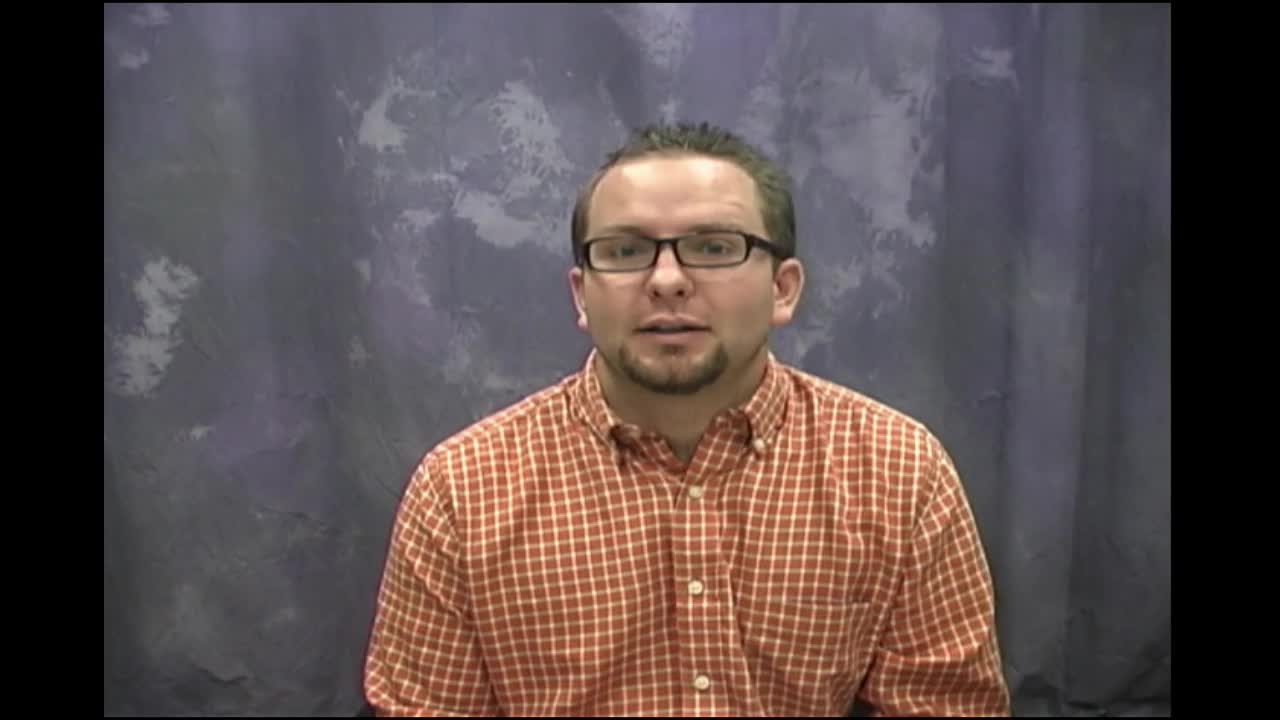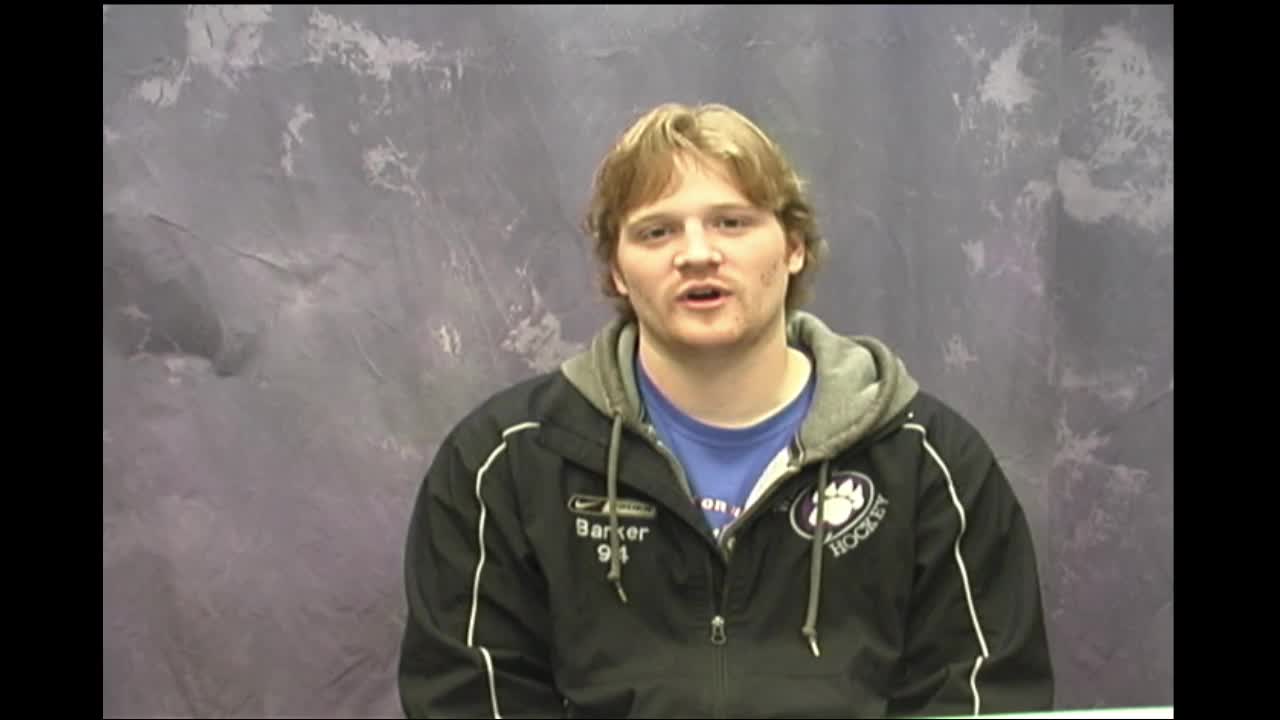| |
| |
-
ENGL 4830 - Directed Readings Credits: (1-3)
Prerequisite: ENGL 2010 or equivalent. May be repeated twice with a maximum of 6 credit hours.
|
| |
-
ENGL 4890 - Cooperative Work Experience Credits: (1-6)
A continuation of ENGL 2890 Cooperative Work Experience. Open to all students. Prerequisite: ENGL 2010 or equivalent. May be repeated 5 times with a maximum of 6 credit hours.
|
| |
-
ENGL 4920 - Short Courses, Workshops, Institutes and Special Programs Credits: (1-4)
Consult the semester class schedule for the current offering under this number. The specific title and credit authorized will appear on the student transcript. Prerequisite: ENGL 1010 with a “C” grade or better or eqivalent. May be repeated 3 times with a maximum of 4 credit hours.
|
| |
-
ENGL 4940 - CW: Senior Project Credits: (3)
Typically taught:
Fall [Full Sem]
Spring [Full Sem]
This course offers an opportunity for students to choose a writing project and workshop it with their peers under the direction of the instructor. Writing skills will be developed and honed through intensive writing projects which could include a variety of genres: nonfiction, creative nonfiction, fiction, (short story collection, novel), biography, autobiography, poetry, etc. The course is designed for students with a strong writing background. Prerequisite: any of the following: ENGL 3250 , ENGL 3260 , ENGL 3270 , ENGL 3280 , ENGL 3350 .
|
| |
-
ENGL 4960 - Metaphor: Editing the Student Literary Journal Credits: (3)
Designed for students selected as staff for Weber State’s Literary Journal, Metaphor. Therefore, it is a hands-on workshop centering on all aspects of journal production: creating an editorial policy, advertisement, selection, layout, copy editing, preparing for print, marketing, distribution, etc. The journal itself is the final product. The staff supports writing and visual arts across campus through participation in several ancillary projects. Prerequisite: ENGL 2010 or equivalent. May be repeated twice with a maximum of 6 credit hours.
|
| |
-
ENGL 5010 - Introduction to Linguistics Credits: (3)
This course introduces students to the scientific study of language. It looks across languages to explore what they have in common, as well as what distinguishes them. Students learn basic analytic techniques in articulatory phonetics, phonology, morphology, syntax, and semantics and apply them to data drawn from various languages. These core concepts may be expanded and applied to other areas, such as language acquisition, language history, language and culture, language and thought, and language and literary expression. This course is designed for students with bachelor’s degrees who have been admitted to Weber State University’s MA program in English but have no upper-division undergraduate coursework in linguistics.
|
| |
-
ENGL 5020 - Introduction to the Study of Language for Teachers Credits: (3)
This course is designed for English teaching majors and minors. It introduces students to the nature of language and linguistics. It also reviews the elements of traditional grammar. This course surveys prescribed applications for prospective secondary school English teachers, including language variation, contemporary alternatives to traditional grammar, the history of English, and linguistics and composition. This course is designed for students who have been admitted to WSU’s MA program in English but have no upper-division undergraduate coursework in linguistics.
|
| |
-
ENGL 5050 - Grammar, Style, and Usage for Advanced Writing Credits: (3)
This course presents the concepts and nomenclature of traditional grammar as a context for students wishing to increase their control of punctuation, style, and usage to become more proficient writers. Its purpose is to offer practical guidance in how grammatical concepts can be applied to revising and editing one’s own or others’ writing to more effectively express one’s intended meaning. The course is designed for students with bachelor’s degrees who have been admitted to Weber State University’s MA program but do not have upper-division undergraduate coursework in linguistics.
|
| |
-
ENGL 5110 - Writing for Teachers Credits: (3)
Designed primarily for teachers already in service, this course explores the most current research and theory concerning the teaching of writing and applies it to real problems they face in the secondary classroom.
|
| |
|
| |
-
ENGR 2010 - Statics Credits: (3)
Typically taught:
Fall [Full Sem]
Vector mechanics, force and moment systems, equilibrium of particles and rigid bodies, friction and moments of inertia. Prerequisite: MATH 1210 and PHYS 2210 .
 
|
| |
-
ENGR 2080 - Dynamics Credits: (4)
Typically taught:
Spring [Full Sem]
Fundamentals of position, velocity and acceleration. Kinematics and kinetics of particles. Newton’s laws, conservation of momentum and energy. Dynamics of rigid bodies. Prerequisite: ENGR 2010 with a grade of “C” or higher.
 
|
| |
-
ENGR 2140 - Strength of Materials Credits: (3)
Typically taught:
Spring [Full Sem]
Fundamentals of stress and strain, Hooke’s law, torsion, bending of beams, combined stresses and design of members. Prerequisite: ENGR 2010 with a grade of “C” or higher.
 
|
| |
-
ENGR 2160 - Materials Science and Engineering Credits: (3)
Typically taught:
Spring [Full Sem]
Combined lecture/laboratory course that introduces the fundamentals of atomic and microscopic structure of metals, polymers, ceramics and composite materials, and how these structures affect mechanical, thermal, electrical and optical properties. Prerequisite: CHEM 1210 . Co-Requisite: ENGR 2140 .
 
|
| |
-
ENGR 2210 - Electrical Engineering for Non-majors Credits: (4)
Typically taught:
Spring [Full Sem]
Combined lecture/laboratory course as an introduction to electrical engineering for non-electrical engineers. Fundamentals of DC and AC circuits, digital circuits, and power circuits. Prerequisite: MATH 1210 .
 
|
| |
-
ENGR 2300 - Thermodynamics I Credits: (3)
Typically taught:
Fall [Full Sem]
Thermodynamic properties, equations of state, first and second laws of thermodynamics. Analysis of open and closed systems, availability and irreversibility, power and refrigeration cycles. Prerequisite: MATH 1210 and PHYS 2210 .
 
|
| |
-
ENGR 2920 - Short Courses, Workshops, Institutes and Special Programs Credits: (1-4)
Consult the class schedule for the current offering under this number. The specific title and credit authorized will appear on the student transcript. May be repeated 5 times with a maximum of 6 credit hours.
|
| |
-
ENTR 1001 - Principles of Entrepreneurship Credits: (1)
This course explores the process and theory designed to help ideation become customer needs driven to buffer against startup failure. By the end of the course, students will have created, tested and updated a business model based entirely upon customer feedback and customer development methodologies as described in Business Model Generation and Start-up Owner’s Manual textbooks.
|
| |
-
ENTR 1002 - Introduction to Entrepreneurship Credits: (3)
This course will present a broad overview of entrepreneurship and teach students how to identify and create valuable entrepreneurial opportunities. This is accomplished via proven process and theory designed to help ideation become customer needs driven instead of based on the instincts of the entrepreneur. Students will create, test and update a business model based entirely upon customer feedback and customer development methodologies as described in Business Model Generation and Startup Owners Manual textbooks. This class will also have students spending time ‘out of the classroom’ - learning about what customers want and will pay for through in-person prototype testing, iteration and feedback. Prerequisite/Corequisite: BSAD 1010 or ACTG 2010 or ENTR 1001 .
|
| |
-
ENTR 1003 - Ideation and Customer Development: Testing Ideas with Customers Credits: (1.5)
This course explores the process and theory designed to help ideation become customer needs driven to buffer against startup failure. By the end of the course, students will have created, tested and updated a business model based entirely upon customer feedback and customer development methodologies as described in Business Model Generation and Start-up Owner’s Manual textbooks. Prerequisite: ENTR 1001 , BSAD 2899 or ECON 2899 .
|
| |
-
ENTR 1004 - Entrepreneurial Finance: Bootstrapping, Accounting & Survival Tactics Credits: (3)
This course presents traditional and non-traditional financing techniques appropriate for the entrepreneurial business start-up. Students will explore the application of corporate finance tools to new venture and private equity transactions including forecast simulations and the application of real options. The course will view finance from the entrepreneur, lender and investor’s perspectives. By the end of the course students will be able to evaluate and apply a range of financial techniques for business start-up purposes. Prerequisite: ENTR 1002 .
|
| |
-
ENTR 2001 - Sales and Marketing: Scaling a Successful Business Model Credits: (3)
This course takes students who have successfully identified a start-up and teaches them the process of customer development, product development, business models and selling ideas to investors and customers. This includes examining a range of marketing techniques that are available for low to no cost. This course will look at alternatives to these traditional methods and students will, through hands on efforts, test these methods with real customers. By the end of the course students will be able to analyze business ideas for commercial viability. Prerequisite: ENTR 1004 .
|
| |
-
ENTR 3002 - Starting the Business Credits: (3)
The aim of this course is for students to develop a business model that they will validate and iterate via paying and participating customers including managing budgets and spending plans designed to launch a business using actual dollars. Student teams will present their company at the beginning of the course as teams and will then use student start-up funds to launch their business. By the end of the course students will have launched a real start up business. Prerequisite: ENTR 2001 .
|
| |
-
ENTR 3003 - Growing the Business Credits: (3)
This course helps students take their start-ups business to the next level and accelerate the pace of customer validation and acquisition. This course will focus on launching the business from a student run start-up in a university setting, to a standalone company that can operate outside the confines of a college campus. Prerequisite: ENTR 3002 .
|
| |
-
ESL 0010 - Language Foundations I Credits: (2)
Students receive instruction and practice writing English on the letter, word and phrase level. Writing by hand using the Roman alphabet is practiced. Students gain an understanding of elementary grammatical structures through practical application in conversation, reading and writing. Basic vocabulary development is stressed.
|
| |
-
ESL 0015 - Language Foundations II Credits: (2)
Students continue to receive instruction and practice writing English on the letter, word and phrase level, and simple sentences are introduced. Handwriting is reinforced and practiced. Students expand their understanding of elementary grammatical structures through practical application in conversation, reading, and writing. Vocabulary development is stressed.
|
| |
-
ESL 0020 - Beginning Reading I Credits: (2)
This course enables students to interpret language written in the Roman alphabetic system and build a foundation of basic vocabulary through reading simple text.
|
| |
-
ESL 0025 - Beginning Reading II Credits: (2)
Students in this course expand their vocabulary and interpretation skills by reading short paragraphs of simple text.
|
| |
-
ESL 0030 - Basic Conversation I Credits: (2)
Students in this course learn to understand and produce short spoken utterances referring to basic personal information and the immediate environment. Vocabulary-building of essential terms is strongly emphasized.
|
| |
-
ESL 0035 - Basic Conversation II Credits: (2)
This course facilitates students’ abilities to engage in basic communicative exchanges involving familiar topics such as personal background and needs, social conventions and routine tasks. There is a strong emphasis on vocabulary building.
|
| |
-
ESL 0040 - Beginning Grammar I Credits: 2
This course introduces entry-level students with no or almost no English to elementary grammar structures using an integrated communicative approach.
|
| |
-
ESL 0045 - Beginning Grammar II Credits: 2
This course continues to build an understanding of elementary grammar structures for students with minimal English using an integrated communicative approach.
|
| |
-
ESL 0050 - Beginning Pronunciation I Credits: 1
Students learn the English sound system through spoken, written and reading exercises incorporating consonants, vowels, and consonant clusters in their most common pronunciations. Concurrent vocabulary-building is emphasized.
|
| |
-
ESL 0055 - Beginning Pronunciation II Credits: 1
Students continue to learn the English language sound system through spoken, written and reading exercises incorporating consonants, vowels and consonant clusters in their most common pronunciations. Concurrent vocabulary-building is emphasized.
|
| |
-
ESL 0060 - Reading Enrichment Credits: (1)
This reading course offers additional reading pracice for Novice-low English language learners. The course focuses on enlarging vocabulary and reinforcing basic sentence structures in English. Credit/no credit.
|
| |
-
ESL 0065 - Reading Enrichment Credits: (1)
This course offers additional reading practice for Novice-mid English language learners. Students expand their vocabulary and reading skills with high interest books adapted for this level. Credit/no credit.
|
| |
-
ESL 0110 - Written Communication I Credits: (2)
Students are introduced to writing simple paragraphs on familiar topics with instruction in basic punctuation as well as basic verb tense. Instruction includes joining sentences and making comparisons. Students continue to develop vocabulary and skills in basic grammar.
|
| |
-
ESL 0120 - Topics in English Credits: (2)
While focusing on reading and vocabulary, this course enables students to apply basic reading strategies to short texts about non-academic topics to help novice level students increase their English proficiency.
|
| |
-
ESL 0130 - Basic English Communication Credits: (2)
The course is designed for the student to develop the ability to sustain basic conversations about common topics and exchanges encountered in and out of class. Course work includes introductory work in speaking, listening, and pronunciation.
|
| |
-
ESL 0141 - Grammar Foundations I Credits: (2)
This course is a basic English grammar course structured around the simple present, present progressive, expressions of past time, nouns and pronouns. Basic sentence patterns using the verb “to be” and “to have” are emphasized. Grammar is integrated into writing exercises and speaking practice.
|
| |
-
ESL 0150 - Pronunciation I Credits: (1)
This course familiarizes students with the consonant and vowel sounds used in spoken English.
|
| |
-
ESL 0160 - Reading Enrichment Credits: (1)
This course offers additional reading practice for Novice-high/Intermediate-low English language learners. Students expand their vocabulary and reading skills with high interest books adapted for this level. Credit/no credit.
|
| |
-
ESL 1210 - Written Communication II Credits: (2)
Paragraph writing is introduced with topic sentences, supporting details, and concluding sentences. Students expand paragraph length with a variety of non-academic topics and methods of development such as narration and description. Sentence writing and vocabulary building are also emphasized. Students continue to develop their keyboarding skills as well as grammatical skills and usage.
|
| |
-
ESL 1220 - Topics in Learning English Credits: (2)
While focusing on reading and vocabulary, this course enables students to further develop their ability to apply reading strategies to semi-academic topics.
|
| |
-
ESL 1230 - Interpersonal Communication Credits: (2)
This course is designed for students of English who are increasing the use of their new language to work, study, socialize, and overcome communication barriers. At this level, students gain facility in oral communication over a greater variety of personal and academic topics.
|
| |
-
ESL 1241 - Grammar Foundations II Credits: (2)
This course builds on skills learned in Grammar Foundations I (ESL 0141 ). Present perfect and present perfect progressive tenses are introduced. Students begin to work with adjective clauses and the use of modals is expanded. Students are challenged to develop skills in recognizing and correcting grammar errors in written material.
|
| |
-
ESL 1250 - Pronunciation II Credits: (1)
This course familiarizes students with rhythm, intonation, emphasis, and phrasing in spoken English.
|
| |
-
ESL 1260 - Reading Enrichment Credits: (1)
This course offers additional reading practice for Intermediate-mid English language learners. Students expand their vocabulary and reading skills with high interest books adapted for this level. Credit/no credit.
|
| |
-
ESL 2310 - Written Communication III Credits: (2)
Paragraph writing is reviewed. The five paragraph essay model is introduced with simple introduction and conclusion paragraphs and adequately developed body paragraphs. Topics are generally experiential. Students continue to develop their language skills with grammar, punctuation, and vocabulary as they progress to becoming independent writers.
|
| |
|
| |
-
ESL 2330 - Academic Communication I Credits: (2)
This course is for more advanced learners of English to develop abilities in speaking about a variety of topics for an extended period of time, and understanding and participating in classroom lectures and small-group discussions. Course work includes effective note-taking, vocabulary, and discussion strategies.
|
| |
-
ESL 2341 - Advanced Grammar I Credits: (2)
This course is an in-depth study of the usage and meaning of more advanced English grammar structures including the past and future perfect, active and passive verbs, and noun clauses.
|
| |
-
ESL 2351 - Community I Credits: (1)
Students will expand their communication skills in English and increase their understanding of American Culture. Students will meet 1 hour per week in class with an instructor and spend 3 hours per week volunteering for a community organization. Students will receive Community Engaged Learning credit for their volunteer activity in this class.
|
| |
-
ESL 2360 - Reading Enrichment Credits: (1)
This course offers additional reading practice for Intermediate-high English language learners. Students expand their vocabulary and reading skills with high interest books adapted for this level. Credit/no credit.
|
| |
-
ESL 2410 - Written Communication IV Credits: (2)
Students write two-and-a half page essays on academic topics and continue to develop paragraph writing. Paraphrasing, summarizing, and analyzing are important skills that students practice. Students continue to develop their language skills. Students learn to use teacher conferencing and writing center tutoring to help them in editing and revising their written work. Students are introduced to writing responses and opinions and expressing their insights into the topics.
|
| |
-
ESL 2420 - Topics for Academic Purposes II Credits: (2)
This course focuses on academic topics. Students increase their English proficiency and vocabulary through an integrated skills approach. Reading texts are only slightly ESL adapted.
|
| |
-
ESL 2430 - Academic Communication II Credits: (2)
This course focuses on English language learners’ abilities in expressing, supporting, and defending opinions. A variety of semi-academic and academic topics are presented at an increasingly authentic, unsimplified language level.
|
| |
-
ESL 2441 - Advanced Grammar II Credits: (2)
This course is an in-depth study of the usage and meaning of advanced English grammar structures including usage and meaning of infinitives and gerunds, conditionals, and adverb clauses.
|
| |
-
ESL 2451 - Community II Credits: (1)
Students continue to expand their communication skills in English and increase their understanding of American Culture. Students will meet 1 hour per week in class with an instructor and spend 3 hours per week volunteering for a community organization. Students will receive Community Engaged Learning credit for their volunteer activity in this class.
|
| |
-
ESL 2460 - Reading Enrichment Credits: (1)
This course offers additional reading practice for Advanced English language learners. Students expand their vocabulary and reading skills with high interest books adapted for this level. Credit/no credit.
|
| |
-
ESL 2750 - Special Projects and Activities for Language Learning Credits: (1-3)
Variable Title.
Special projects are designed to offer a variety of language and cultural experiences for the ESL student. Activities offered may include trips, special interest seminars, independent study or workshops. Contact the LEAP Department for programs offered.
|
| |
-
ETM 5913 - Six Sigma Tools I Credits: (3)
This distance learning course provides an introduction to the six sigma body of knowledge as defined by the American Society of Quality (ASQ). The course will examine the foundations of six sigma and the statistical tools used in the initial stages of the DMAIC problem solving methodology. Prerequisite: BS with three years relevant experience & an engineering statistics undergraduate course or equivalent such as MATH 3410 is required, or instructor’s approval. Students also must be able to work on an approved six sigma project at a firm.
|
| |
-
ETM 5923 - Six Sigma Tools II Credits: (3)
This distance learning course is a follow-on to the initial six sigma course and provides additional detail on the analyze, improve and control portions of the DMAIC problem solving methodology. This course is required for the Institutional Certificate in Quality and Lean Manufacturing, and can be used as a technical elective for the Oklahoma State University Engineering Technology Management Master’s Degree. Prerequisite: ETM 5913 , Six Sigma Tools I.
|
| |
-
ETM 5933 - Lean Tools Credits: (3)
This course teaches students lean manufacturing tools for continuous improvement in a manufacturing environment. Prerequisite: BS with three years relevant experience & an engineering statistics undergraduate course or equivalent such as Math 3410 is required, or instructor’s approval. Students also must be able to work on an approved six sigma project at a firm. This distance learning course is required for the Institutional Certificate in Quality and Lean Manufacturing, and can be used as a technical elective for the Oklahoma State University Engineering Technology Management Master’s Degree.
|
| |
-
ETM 5943 - Lean-Sigma Implementation Credits: (3)
This course introduces students to the implementation skills necessary to successfully combine and apply lean manufacturing and six sigma concepts in small to mid-sized manufacturing facilities. This course is required for the Institutional Certificate in Quality and Lean Manufacturing, and can be used as a technical elective for the Oklahoma State University Engineering Technology Management Master’s Degree. Prerequisite: ETM 5923 , ETM 5933 .
|
| |
-
FIN 1010 - Personal Finance Credits: (3)
Typically taught:
Fall [Full Sem, Online]
Spring [Full Sem, Online]
Summer [Online]
Personal and family budgeting, installment buying, borrowing money, buying a home, life and property insurance, personal investment, and retirement and estate planning.
|
| |
-
FIN 2300 - Introduction to Investments Credits: (3)
Typically taught:
Fall [Full Sem]
Spring [Full Sem]
A study of investment opportunities, mechanics, analysis, risk, and risk management at the introductory level. This course is designed for non-finance majors and will not be accepted as a substitute for FIN 3300 .
|
| |
-
FIN 3200 - Financial Management Credits: (3)
Typically taught:
Fall [Full Sem]
Spring [Full Sem]
Summer [1st Blk]
Financial analysis, planning and control, working capital management, capital budgeting, and short-term and long-term financing. Student use of computers is required for the preparation of case study material used to enhance the presentation of selected topics presented in the course. Prerequisite: Business Foundations; BSAD 2899 ; QUAN 3610 .
|
| |
-
FIN 3300 - Investments Credits: (3)
Typically taught:
Fall [Full Sem]
Spring [Full Sem]
Summer [2nd Blk]
An in-depth study of principles, concepts, and tools used in the investment field as they relate to investment opportunities, mechanics, financial statement analysis, risk, and portfolio management. Computer use is required to access the Dow-Jones market analyzer investment software and in the preparation and analysis of investment portfolios. Prerequisite: Business Foundations; BSAD 2899 ; FIN 3200 .
|
| |
-
FIN 3350 - Financial Institutions Credits: (3)
Typically taught:
Fall [Full Sem]
Spring [Full Sem]
Summer [1st Blk]
A study of the functions and significance of the major financial institutions, such as commercial savings institutions, with an emphasis on management problems, regulations, credit appraisal, and loan types. Prerequisite: Business Foundations; BSAD 2899 ; FIN 3200 .
|
| |
-
FIN 3400 - Real Estate Principles and Practices Credits: (3)
Fundamental economic aspects of real estate with emphasis on realty as a commodity of trade. The subject matter in this course is of general interest to both those desiring to enter the real estate profession and those who only intend to own real estate.
|
| |
-
FIN 3500 - Capital Budgeting Credits: (3)
Typically taught:
Fall [Full Sem]
Spring [Full Sem]
Capital investment decision-making procedures relative to make/ buy, lease/buy, working capital, replacements, and new investment decisions. Involves use of the computer in the analysis of cash flows and capital acquisition alternatives. Prerequisite: Business Foundations; BSAD 2899 ; FIN 3200 .
|
| |
-
FIN 4400 - Financial Problems - Corporate Finance Credits: (3)
Typically taught:
Fall [Full Sem]
Problems in financial management with an emphasis on corporate finance. Use of financial software and computers is an integral part of problem solutions. Prerequisite: Business Foundations; BSAD 2899 ; FIN 3200 . May be repeated 3 times for credit.
|
| |
-
FIN 4410 - Financial Problems - Investments Credits: (3)
Typically taught:
Spring [Full Sem]
Problems in financial management with an emphasis on investments. Use of financial software and computers is an integral part of problem solutions. Prerequisite: Business Foundations; BSAD 2899 ; FIN 3300 . May be repeated 3 times for credit.
|
| |
-
FIN 4800 - Independent Research Credits: (1-3)
Directed research and study on an individual basis. May be repeated until a total of 4 hours credit is accumulated. Prerequisite: Business Foundations; BSAD 2899 ; Senior Standing; Written Instructor Approval.
|
| |
-
FIN 4850 - Finance Study Abroad Credits: (1-3)
Typically taught:
Fall [Full Sem]
Spring [Full Sem]
Summer [Full Sem]
This course is designed for students who wish to explore financial theory and practice in countries other than the U.S. Students will study international finance as offered through a partner university (or other university with department chair approval). Prerequisite: BSAD 2899 . May be repeated once up to 6 credits.
|
| |
-
FIN 4860 - Finance Internship Credits: (3)
Typically taught:
Fall [Full Sem]
Spring [Full Sem]
Summer [Full Sem]
A structured professional-level field experience. The student will be counseled and supervised as he/she applies and integrates the knowledge and skills obtained through finance courses. Prerequisite: Business Foundations; BSAD 2899 ; Senior Standing; Instructor approval.
|
| |
-
FIN 4900 - Special Topics in Finance Credits: (4)
Special treatment of current topics in Finance. This course will involve primary and/or secondary research by class participants. Prerequisite: Business Foundations; BSAD 2899 ; FIN 3200 ; Instructor approval.
|
| |
-
FL 1000 - Proficiency Development Credits: (1-2)
Typically taught:
(N)
(Cr/NCr) Non-graded courses for entry-level students to augment foreign language instruction in stress-free activities such as reading children’s literature, learning and performing skits, folk dancing, singing, cooking, etc. May be repeated for credit under different titles.
|
| |
-
FL 1010 - First Semester Credits: (3)
Typically taught:
Fall [Full Sem] (N)
Introductory course assuming no significant previous experience with the language. Beginners and students with less than two years of high school language should register for this class. Emphasis on everyday conversation and exposure to cultural perspectives.
|
| |
-
FL 1020 - Second Semester Credits: (3)
Typically taught:
Spring [Full Sem] (N)
Continuation of FL 1010 . Basic language skills including listening, speaking, reading, writing and culture.
|
| |
-
FL 1700 - Conversational Skills for Specific Purposes Credits: (1-3)
Typically taught:
(N)
Specific vocabulary and speaking skills in one semester (e.g., nursing, law enforcement, medical, tourism, family language courses, etc.). May be repeated for credit under different titles.
|
| |
-
FL 1851 - Study Abroad Credits: (3)
Typically taught:
(N)
Language and culture studies for students with no previous experience in the target language and culture. Most assignments are performed in English. Prior travel experience does not apply.
|
| |
-
FL 1852 - Study Abroad Credits: (1-3)
Typically taught:
(N)
Language and culture studies for students with no previous experience in the target language and culture. Most assignments are performed in English. Prior travel experience does not apply. May be repeated twice with a maximum of 3 credit hours.
|
| |
-
FL 2000 - Proficiency Development Credits: (1-2)
Typically taught:
(NH)
(CR/NC) Non-graded courses for second-year students to augment foreign language instruction in stress-free activities appropriate to the linguistic level of second-year students. May be repeated under different titles.
|
| |
-
FL 2010 - Third Semester Credits: (3)
Typically taught:
Fall [Full Sem] (NH)
Continuation of FL 1020 . Assumes completion of first-year or equivalent experience. Students learn to understand and express ideas about their community and the world. Includes listening, speaking, reading, writing and culture.
|
| |
-
FL 2020 HU - Fourth Semester Credits: (3)
Typically taught:
Spring [Full Sem] (NH)
Continuation of FL 2010 . The learning and application of strategies for acquiring a foreign language. Students also learn how cultural products and practices reflect a culture’s attitudes, values, ideas and meaning. The process of language acquisition and the seeking of cross-cultural understanding provide insights into the commonalities of how the human family learns, thinks and communicates.
|
| |
-
FL 2021 - Second Year II Credits: (3)
Typically taught:
(NH)
Continuation of FL 2010 without General Education Humanities credit. Offered through examination only.
|
| |
-
FL 2030 - Second Year Language Review Credits: (3)
Typically taught:
Fall [Full Sem] (NH)
This course will prepare students who wish to continue language study. Emphasis on conversational skills and a review of language structure and usage.
|
| |
-
FL 2550 - Cultural Heritage in Translation Credits: (3)
Variable Title
Studies in culture, history, geography, social customs, fine arts and civilization for students with no or very limited proficiency. This course will be taught in English. May be repeated once for other non- English speaking cultures.
|
| |
-
FL 2600 HU - Introduction to Cultural and Literary Studies in Translation Credits: (3)
Variable Title
May be offered under any of the languages taught in the department. All Foreign Language HU2600 courses are taught in English and all texts are read in English translation in order to make some of the literature we normally would teach in a foreign language accessible to all students. These courses may introduce students to specific literary periods, literary themes or some prominent authors in specific areas of the world where languages other than English are spoken. May be repeated up to 10 times for credit under different titles.
|
| |
-
FL 2851 HU - Study Abroad Credits: (3)
Typically taught:
(NH)
Language and culture studies for students whose minimal proficiency is Novice High. Language assignments at the Novice or Intermediate-Low levels are performed in the target language. All other assignments are performed in English. Prior travel experience does not apply.
|
| |
-
FL 2852 - Study Abroad Credits: (1-3)
Typically taught:
(NH)
Language and culture studies for students whose minimal proficiency is at Novice High. Language assignments at the Novice or Intermediate-Low levels are performed in the target language. All other assignments are performed in English. Prior travel experience does not apply. May be repeated twice with a maximum of 3 credit hours.
|
| |
-
FL 2920 - Short Courses, Workshops, Institutes and Special Programs Credits: (1-6)
Consult the class schedule for the current offering under this number. The specific title and credit authorized will appear on the student transcript.
|
| |
-
FL 2920S - Community Service Credits: (2)
Typically taught:
(NH)
Students will receive an overview of community service and explore opportunities for service learning in the community. Five preparatory workshops (first week only) followed by 55 hours of approved community service.
|
| |
-
FL 3000 - Proficiency Development Credits: (3)
Typically taught:
Spring [Full Sem] (IL)
This is a transition course to upper division. The course focuses on oral proficiency development. Students will learn a variety of techniques and strategies to increase their oral proficiency in a variety of social, educational and cultural settings. Native-speaking students or those who have acquired proficiency through residence in the target language community are not eligible to take this class.
|
| |
-
FL 3060 - Grammar & Composition Credits: (3)
Typically taught:
Fall [Full Sem] (IL)
[Refer to the Class Schedule for information on specific languages]
Required of all majors and minors. Readings to develop conversation, composition and grammar skills. One sheltered section may be offered to students who have not had extensive in-country experience.
|
| |
-
FL 3160 - Introduction to Literature Credits: (3)
Typically taught:
Spring [Full Sem] (IL)
[Refer to the Class Schedule for information on specific languages ]
Required of all majors and minors. 3160 may be taken concurrently with other literature courses. One sheltered section may be offered to students who have not had extensive in-country experience.
|
| |
-
FL 3190 - Foreign Language Journal Credits: (1)
Typically taught:
(IM)
For foreign language students in the third year who work on publishing the foreign literary journal. Includes selecting articles, editing and preparing journal layout.
|
| |
-
FL 3220 - Phonetics and Phonology Credits: (3)
Typically taught:
Fall [Full Sem] (IL)
Analysis of the sounds of language and word formation: practice of native like speech patterns. Required of all teaching majors and minors.
|
| |
Page: 1 <- Back 10 … 7
| 8
| 9
| 10
| 11
| 12
| 13
| 14
| 15
| 16
| 17
… Forward 10 -> 35 |